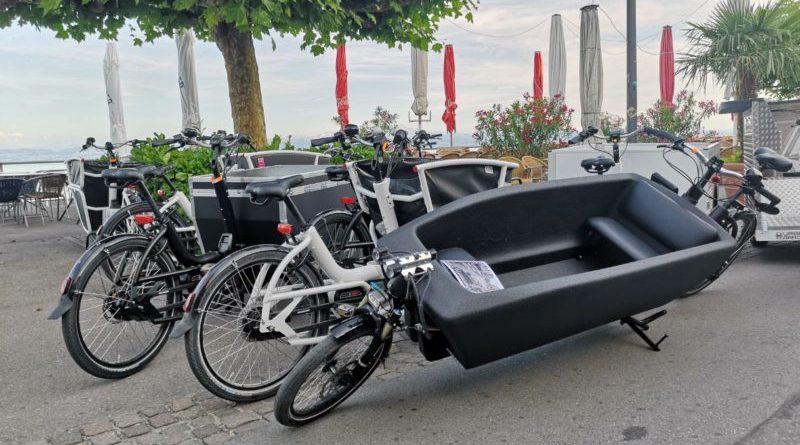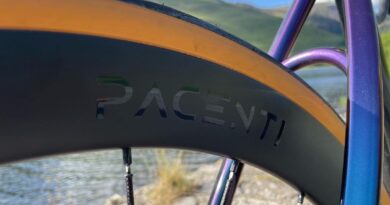European Commission prompts light electric vehicles regulation investigation
The European Commission has asked the UK-based Transport Research Laboratory to begin an assessment of whether rules Governing light electric vehicles are set at the appropriate limits for many forms, including for electric cargo bikes.
In what could be the early stages of a fundamental re-adjustment, the Commission has expanded upon its speech at a LEVA-EU organised symposium in February at which there was an indication that regulations governing “personal mobility devices” may be investigated with a view to finding the sweet spot. At the time this was taken to mean electric scooters, as well as other small electric vehicles such as monowheels.
LEVA-EU has now alerted its members that the scope is likely to run wider than that, which is likely to mean an assessment of the speed pedelecs’ role in the transport mix in Europe. Where legalised in Belgium, the speed pedelec has been allowed to flourish, with many users in the Flanders region undertaking longer journeys on electric bikes that enable assistance of up to 30mph. Over 12,000 of the vehicles are now said to have been registered, up about 3,500 in one year.
The investigation into the appropriate levels of assistance will arguably have even scope for the fast-emerging electric cargo bike market, for which there has been significant demand among logistics businesses, in particular. For many brands, the 250W motor limit keeps product out of the L-category, which has increasingly become a barrier to functionality as loads have grown heavier.
Despite this, high growth for the market as a whole has been forecast and 2 million new units are expected to sell in the next decade. It has been shown that, where a city is not too hilly in topography, the majority of businesses can save time and money over van use when utilising cargo bikes as part of its transport mix.
It is highly likely, believe many industry insiders, that the full potential for these markets has thus far been capped by the regulations, with innovations bending to rules that arguably aren’t appropriate and in keeping with the natural, but rapid evolution of the light electric vehicle sector.
Speaking to CI.N this morning, LEVA’s Annick Roetynck said: “This is something I have been working on for exactly 21 years now. I sincerely hope it will result in a fundamental change of legislation, which will allow light electric vehicles other than e-bikes with pedal assistance up to 25 km/h – 250W to flourish and contribute to sustainable transport.”
Furthermore, there are legal bottlenecks for other modes excluded from the L-category. The UK and the Netherlands at present forbid electric scooters from the roads if privately owned, though do allow share scheme units where trials exist. Simultaneously, other member states are developing their own technical rules, something that is is increasingly seeing markets fall out of sync and thus creating a headache for manufacturers.
As illustrated by LEVA-EU, E-scooters with saddles or very light mopeds, which are technically very similar if not identical to e-scooters without saddles are not excluded from the L-category. They are therefore subject to an extremely complicated, expensive though inaccurate type-approval, upon which they are subject to the terms of use for conventional mopeds including the wear of a motorcycle helmet.
The regulation assessment is seemingly keeping in mind that the EU has a Green Deal with vast carbon emission reduction targets to hit. Without a fundamental change in transport and logistics, the goals of that legislation will be incredibly hard to meet. It is proposed in the Green Deal that, by 2050, green house gas emissions will have to have fallen 90%.
TRL is now calling on all LEV stakeholders for their input. The brief is “to hear about the effects of national and regional regulations on the safety of, and market for, PMDs. We are also interested to hear any ideas that stakeholders might have for the best ways in which new and existing PMDs could be regulated in order to safely and efficiently integrate them into road use. We understand that the scope of this project includes vehicles that might already be type approved in the L category, e.g. cycles designed to pedal and cargo bikes and we are therefore open to suggestions regarding any improvements that could be made to that system.”
As part of its investigation, TRL will also consider how a wave of new light electric vehicles will required adapted road spaces in order to become a significant part of the transport and business mix. A it stands, Regulation 168/2013 was designed prior to the emergence of new EV technologies and design evolution.
Referencing the February symposium, Roetnyck added of the objective going forward “We want all light, electric vehicles up to a certain weight and speed to be decided in consultation with the industry, to be excluded from Regulation 168/2013 (type-approval for mopeds and motorcycles). As a result, they will automatically come/remain under the Machinery Directive and it will allow CEN (the European standardization institute) to develop/adapt specific safety standards. This procedure has been used for conventional electric bicycles and proves to be effective. Millions of electric bicycles are on the road in Europe without any notable safety issue.
“Electric cargo bikes must be excluded from Regulation 168/2013 without a power limit and with a speed limit to be discussed with the industry. It could for instance make sense to set that limit at 30 km/h in view of the 30 km/h limit, which is currently in use or being introduced in a growing number of EU cities.”
LEVA-EU is now calling on every company with an interest in the progress of the light electric vehicles business to provide their feedback by email here.
Concluding, Roetncyk told us: “It is a very complicated issue and it is high time for the industry to try and comprehend so that they can start a dialogue with the EU on improving the rules. LEVs have a huge role to play in making transport more sustainable. The EU will not achieve its Green Deal ambitions nor planned GHG emission reduction without a far bigger uptake of LEVs. That is why this issue is so crucial and that is what LEVA-EU is working on/for.”


